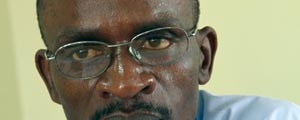
I watched with ambivalence as French President Francois Hollande received a rapturous welcome in Mali over the weekend as he promised that France would stay as long as necessary to continue the fight against Islamist rebels in the country’s north.
View Point with Wisdom Mdzungairi
I wondered how African leaders just returned from the African Union (AU) summit held under the theme Pan Africanism and Renaissance could have felt, given that they were opposed to France’s involvement in that conflict in the first place.
Most leaders felt France’s involvement would open floodgates for the West were they to misgovern their countries. In fact, they are still angry on behalf of slain Libyan leader Muammar Gaddafi – who had distinguished himself as the AU’s major donor and funder.
But, as troops worked to secure Kidal, the last bastion of radicals who had occupied the vast desert in the north for 10 months before the French army’s surprise intervention, Hollande told Malians it was time for Africans to take the lead but that France would not abandon them. “Terrorism has been pushed back, it has been chased away, but it has not been defeated yet,” said Hollande, whose decision to intervene in Mali three weeks ago won him accolades in the former French colony, but not from some of Africa’s “Dear Leaders”.
“France will stay by your side as long as necessary, as long as it takes for Africans themselves . . . to replace us,” he told a large crowd in the capital, Bamako, at a monument commemorating Mali’s independence from France.
Earlier, in the fabled city of Timbuktu, thousands gathered in the central square and danced to the beat of drums – a forbidden activity during the extremists’ occupation – to welcome Hollande, with shouts of “Vive la France! Long Live Hollande!” Mali’s interim president Dioncounda Traore thanked his counterpart for the French troops’ “efficiency”, which he said had allowed the north to be freed from “barbarity and obscurantism”.
Hollande was offered a young camel draped in a French flag as he toured the city. The people of Timbuktu will thank Hollande forever. “We must tell him that he has cut down the tree, but still has to tear up its roots,” said 53-year-old Fanta Diarra Toure. Hollande and Traore toured Timbuktu’s 700-year-old mud mosque of Djingareyber and the Ahmed Baba library for ancient manuscripts.
- Chamisa under fire over US$120K donation
- Mavhunga puts DeMbare into Chibuku quarterfinals
- Pension funds bet on Cabora Bassa oilfields
- Councils defy govt fire tender directive
Keep Reading
Last week AU leaders hotly debated the contentious involvement of France in Mali without their tacit consent, but Mali itself told them they had been slow and decided to call France to protect its territorial integrity. To most of them, the AU must have its own African Standby Force to intervene in conflicts on the continent.
Much as they truly believe in sovereignty, funding has always been a divisive factor among the leaders themselves. For example, AU Peace and Security Commissioner Ramtane Lamamra said the African-led Force for Mali (AFISMA) would cost about $500 million, with the AU pledging an “unprecedented” $50 million – rich as it is – for the mission and Mali’s army.
Is that Pan-Africanism and Renaissance – ignoring a fellow African country at their time of need? A woeful lack of cash and logistical resources has hampered the AFISMA force, set up by the West African bloc Ecowas to support Malian troops against Islamist forces who seized swathes of the arid north after a coup last year.
And just 2 000 African troops have been sent to Mali or neighbouring Niger, with the bulk of the fighting borne by some 2 500 French troops who launched a military offensive on January 11.
In all, the crisis has caused some 377 000 people to flee their homes, including 150 000 who have sought refuge across Mali’s borders, according to the United Nations.
That in itself is an environmental disaster by any standard, as this crisis has now straddled to neighbouring countries resulting in refugee camps in Niger, Burkina Faso and Mauritania. These people need basic food, clean water and healthcare provisions. According to Oxfam International, the human impact is evident: 30 000 people are reported to have been displaced by the combat, adding to the 345 000 Malians who have been displaced already over the last year. Across the region, vulnerable communities are struggling to host them even as far as Zimbabwe.
To those in Europe, the Mali conflict seemed to come out of nowhere. But these events could have deep roots in Mali’s history, going back decades. Malians are suffering dreadfully from this conflict -and this is on top of on-going hardship due to a severe food crisis that affected this part of West Africa in 2012.
Will the current military action in Mali solve this? Certainly, not by itself. That will mean good governance in Mali, so that every part of the country feels that the government represents their interests. Mali is poorer than 80% of the countries in the world. There are no quick solutions. But at least it needs an inclusive political settlement so that every community has faith that the state is seeking development for all. Watching this, ofcourse, puts us in a morally uncertain position: Our African neighbours’ troubles have been turned into theatre. Yet African leaders still seem unsure about them.
I am wondering how African leaders are feeling after the rapturous welcome of Hollande on African soil, and whether they are prepared to turn the tide. But how?
[email protected]/twitter.com/wisdomdzungairi











